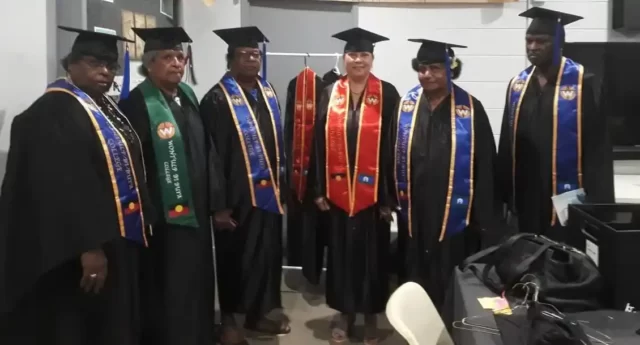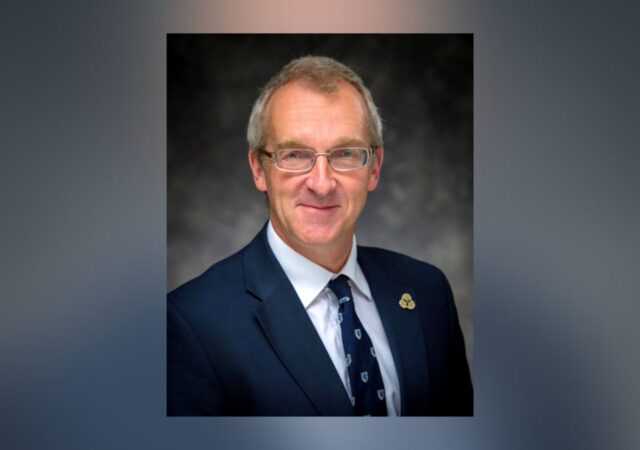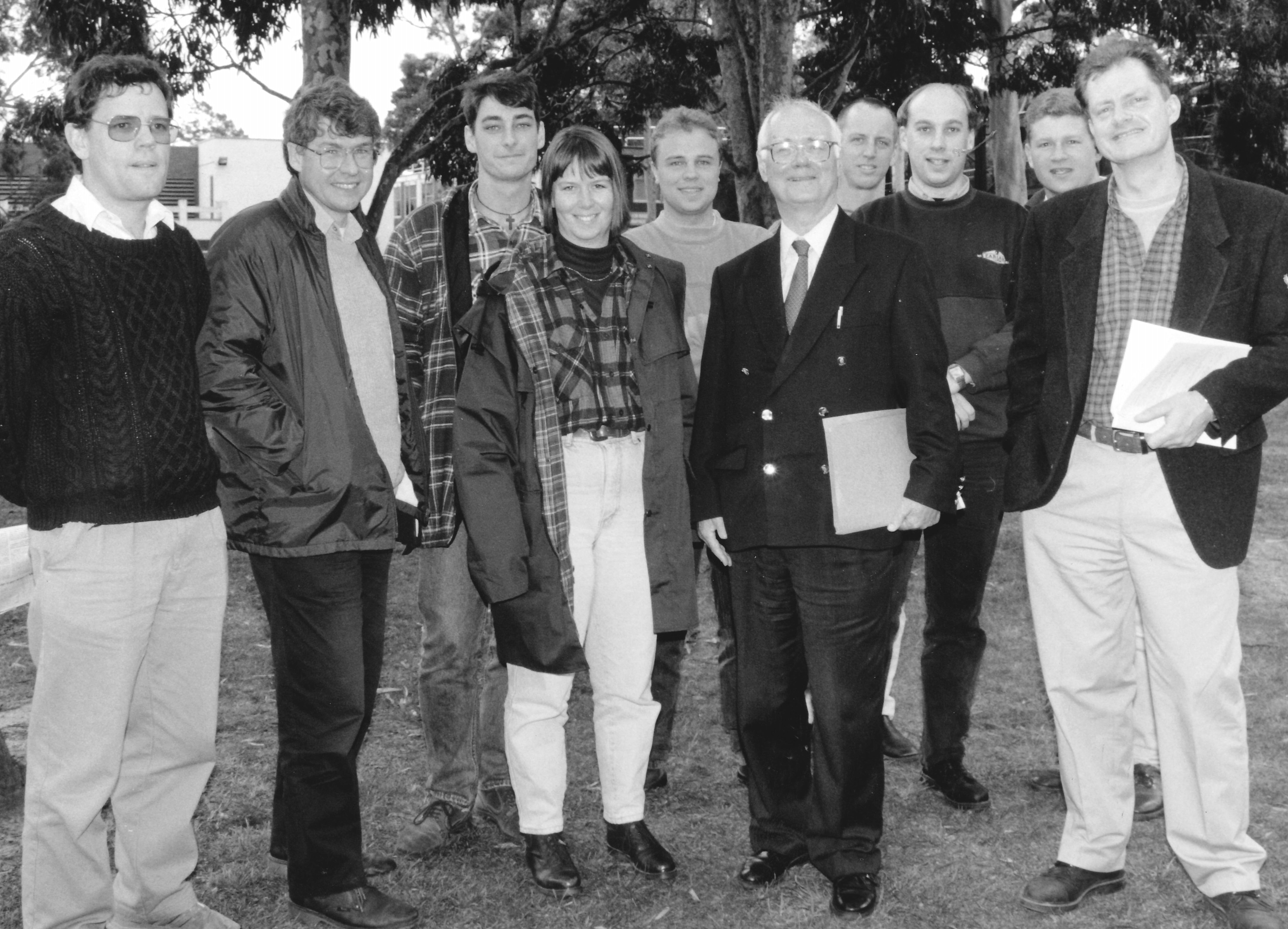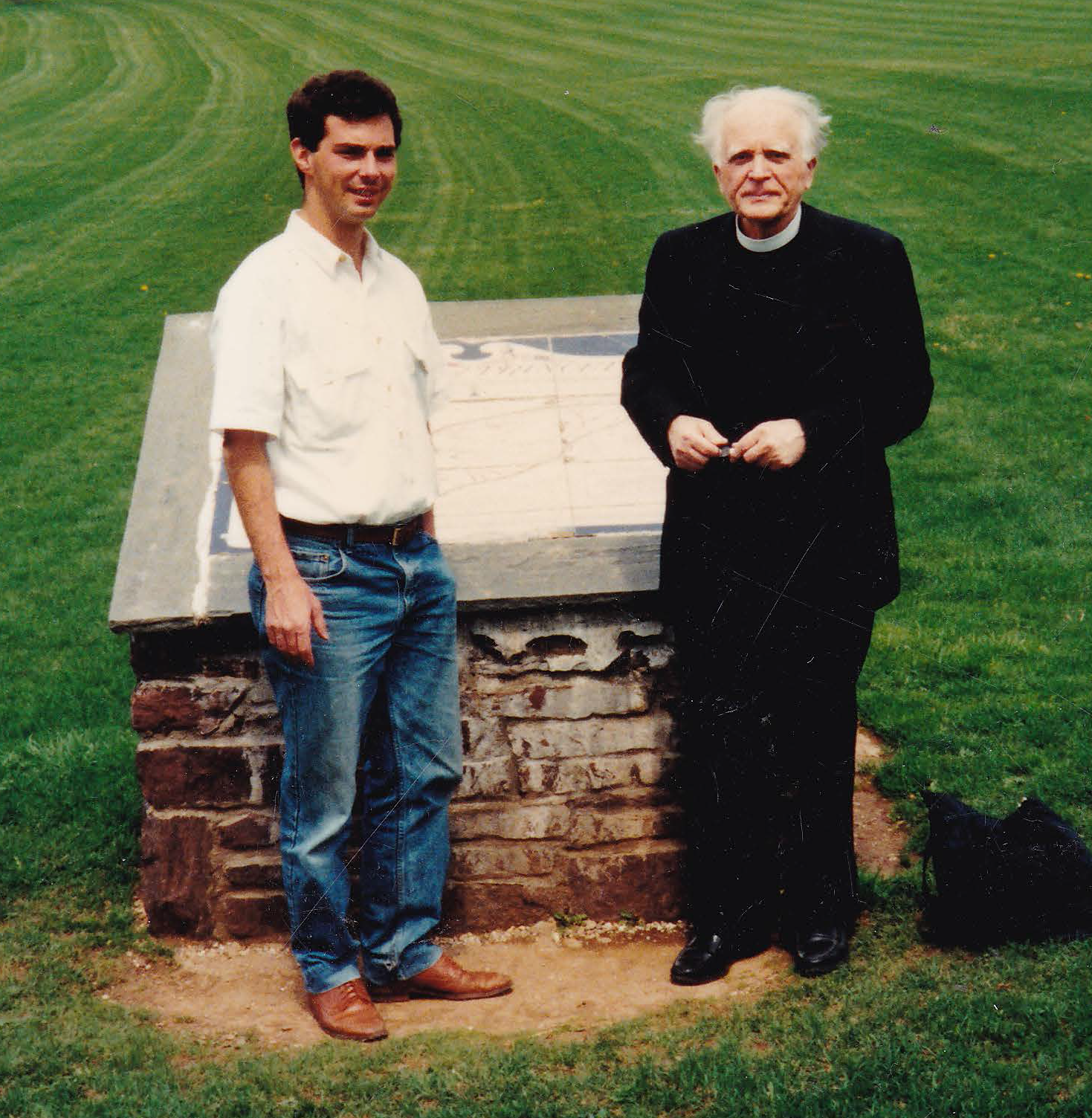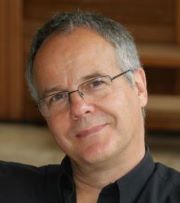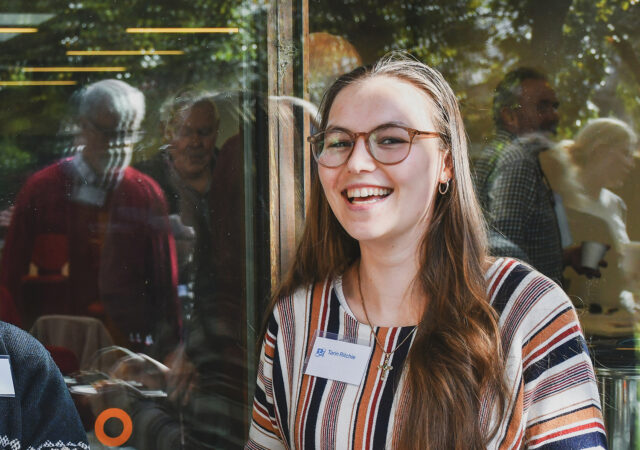
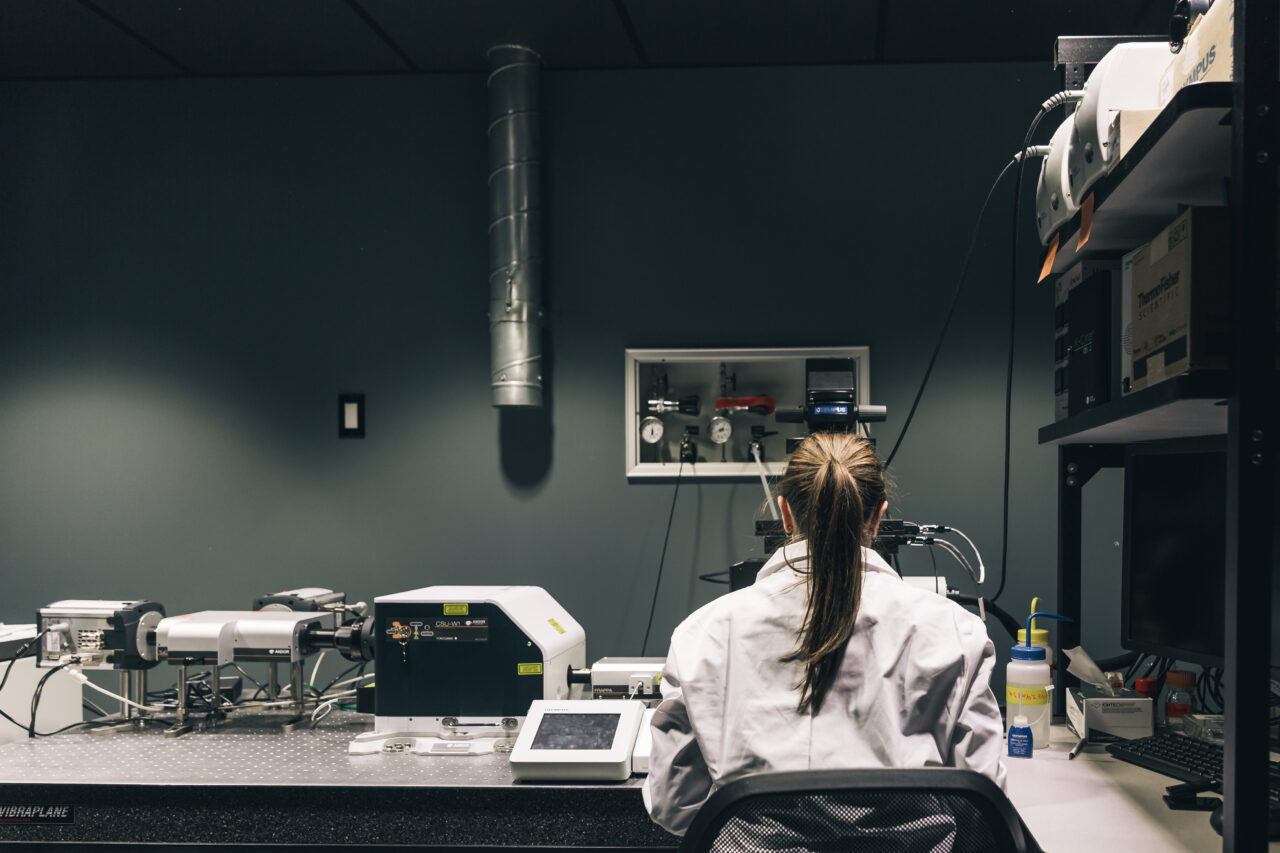
Professor Andrew Wood
Swinburne University, Melbourne
Andrew Wood is a Biophysicist who is currently with the School of Health Sciences at Swinburne University in Melbourne. He has taught many aspects of Biomedical Instrumentation over many years. He has been involved in research into possible health effects of radiofrequency and other forms of non-ionising radiation over several decades. He is a member of the Scientific Expert Group of the International Commission for Non-ionising Radiation protection. He worships at Warragul Anglican Church.
One thing the Covid Pandemic has done is to focus attention on the power of science. We have suddenly become a nation of epidemiologists as we all pore over graphs and charts. We read the press releases from international drug companies. We can’t wait for the final trials of vaccines and the roll-out to be completed so that we can all get back to doing what we’ve always done. In the midst of this, the competence and integrity of scientists has been questioned, with even some world leaders belittling trusted experts. Social media is abuzz with conspiracy theories, including that the virus is spread by the rollout of the new 5G telecommunications network. On a less raucous level, the question of whether masks are necessary or not went from the WHO stating confidently ‘no’ to equally confidently ‘yes’ in only a few months. With such sudden changes in definitive statements, what does this do for the trust the public places in science? Scientists argue that the scientific method of generating and testing hypotheses via empirical studies, with the arms-length scepticism of dispassionate observers, is a method of uncovering objective truth. Many non-scientists, who view issues through the lens of cultural and personal biases, regard the assertions of scientists as opinions, with ‘truth’ determined by consensus rather than empiricism. How many dinner party discussions on scientific matters have ended with someone loudly proclaiming: ‘well nobody really knows, do they, we can just make up our own minds’? This same person will drive home in a car, crafted on years of scientific principles, on roads where similar principles have guided the road designers to maximise safety, while permitting speeds undreamt of in previous generations. Controversy is something the media thrive on, and no discussion on scientific matters is complete without one ‘expert’ being pitted against another. This again confirms in the minds of many that those who speak ‘in the name of science’ are not quite to be trusted. Scientific uncertainty and the problems of making conclusions on limited data are concepts which are foreign to many sectors of the public. They expect scientists to give clear yes/no answers: ‘after all, that’s what we pay them for, isn’t it?’
However, let’s admit that the picture of the scientist as a dispassionate, detached truth-seeker is somewhat idealised. Reading through recent issues of the premier scientific journals ‘Nature’ and ‘Science’ indeed reveals a community which needs to get its house in order before this community can be relied on to advance the welfare of humankind, and, for Christian believers, the advance of the Kingdom. There are several issues which have eroded the standing of science and scientists in the general community. These will now be discussed briefly.
1. Lack of reproducibility of reported results
Science has as one of its core principles that a study report should contain sufficient methodological detail to allow independent replication by other scientists. However, when this is done, a surprisingly high percentage of replication attempts are unsuccessful. For example, a study reported in Nature (Baker, 2016), revealed that 77% of biologists were unable to reproduce results reported by others and staggeringly 60% were not able to reproduce their own earlier results. For engineering and physics the percentage for inability of reproducing others’ results was still around 68%. Why is this? The pressure to publish was one reported reason, but another very common reason is selective reporting, including ‘cherry picking’ of ‘interesting’ results and what has been come to be known as ‘p-hacking’. This is a ‘fishing expedition’, where typically a large number of end-points are measured, a large number of comparisons are made. The most highly significant differences then form the focus of the report. Statistical significance is measured by ‘p’, which is the probability of such a difference being due to chance: hence the smallest ‘p’ values have the greatest significance. The misuse of statistics has come under a lot of scrutiny lately, for example, there have been calls to ban the reporting of ‘statistical significance’ (Amrhein, Greenland, & McShane, 2019) in favour of other metrics. Another aspect of statistical fishing expeditions is the reliance on computational statistical packages, used like sausage machines, to deliver neatly packaged ‘results’. This too has attracted opprobrium.
A possible way forward is to pre-publish methodologies or pre-register intended analyses, including the specific hypotheses under investigation. Many journals now allow this to happen (Munafo et al., 2017), or at least to grant pre-acceptance of the paper in advance of data collection, to prevent post-hoc adjustments to maximise ‘interesting’ results.
Peer-review of individual studies and summative reviews across similar studies have long been regarded as the main safeguards against defective methodology or false inference. However, peer-review is at best patchy and many studies appear in print to be later retracted. Until recently, most reviews across studies have been simple ‘paper counts’: if the number of studies supporting a specific hypothesis is greater than the number of studies which don’t support it, then ‘the weight of evidence’ is to accept the hypothesis. This approach, which is now termed ‘narrative review,’ tends not to recognise the range of quality between studies, nor the bias against studies reporting no effects. Systematic reviews, on the other hand, make every effort to include all relevant studies, using bibliographic search software, and include measures of ‘quality’ and the possibility of bias in overall appraisal. Although mainly used in health and biological sciences, where evidence-based decision-making on health interventions is paramount, similar approaches are now used in other areas, such as environmental sciences. These recent developments should go some way to promoting the reliance on objective measures of dependability and hence increase public trust.
2. The changed nature of scientific research and its governance.
In earlier generations, the scholar-scientist often worked alone in a dedicated laboratory, sharing his, or very occasionally, her, findings with like-minded (usually) gentlemen in learned societies such as London’s Royal Society. It was a high-minded endeavour, many following the ideal of Kepler to be ‘thinking God’s thoughts after him’. Nowadays research is usually a multi-disciplinary and multi-institutional activity, with much time taken up chasing diminishing funding. The landscape is dominated by metrics, such as impact factors, ‘h-indices’ and ‘paper counts’. Saltelli & Funtowicz, (2017) have identified at least two specific problems in modern-day science: the exponential growth in papers and a community with high ideals becoming enslaved to objective measures. This leads to practitioners being swamped with information and being tempted to ‘game’ the system to maximise funding chances. In addition, where practitioners fail to recognise the myth of value-neutral nature of science, they become prey to political and commercial pressures, (recent Nature podcasts have explored this theme https://www.nature.com/articles/d41586-020-03067-w). The move recently has been not only to rely on the self-proclaimed trustworthiness of practitioners but also to promote the demonstration of trustworthiness and elimination of personal bias as far as possible.
One example is to use ‘double-blinding’, where both study participants and practitioners are ‘blind’ on whether they are administering an actual or a sham (placebo) intervention, to investigate the efficacy of interventions. Many methods sections of papers have been expanded to demonstrate how quality control measures are incorporated. However, many senior scientists complain about the increasing burden of administration and compliance obligations which can lead to poor supervision of personnel or being unable to fully oversee the analysis workflow. As mentioned, most papers include authors from several disciplines and from different institutions. Under these circumstances, it is often difficult to coordinate data collection/analysis and for the various contributors to be sufficiently acquainted with all aspects of the study. Many journals now insist that the authors specify the extent and area of their contributions to the study, with the lead author signing to indicate that ethical practices have been followed. Partly, this is to reduce the incidence of ‘ghost’ authors, included because of their standing in the field rather than their actual contribution to the study. In conclusion, despite the changing pressures on science as practiced, some of the weaknesses are now being recognised and rectified where needed. Certainly, in crises such as climate change and novel viruses the public need to be assured that that the scientific enterprise is well governed and as free from personal or systemic biases as possible.
3. Questionable practices.
Although, in the main, the scientific enterprise is as trustworthy as ever, if not more so, there are still instances of ‘scientist behaving badly’ which need to be made public and addressed. This phrase was first used in 2004 and 2005 in articles in Nature (Giles, 2004, Martinson, Anderson, & de Vries, 2005). Such bad behaviour is largely a product of the system being driven by metrics, mentioned earlier. The acronym FFP refers to fabrication, falsification and plagiarism. The last includes self-plagiarism, where very similar versions of the same results and analyses appear in different journals, attempting to increase ‘paper count’. Other examples of bad behaviour include, deliberate obfuscation, such as introducing heavy mathematics with no purpose other than to add gravitas to an otherwise lightweight study; ‘massaging’ or ‘prettying’ of data to increase chances of publication; and concealing vital information on method or analysis to discourage replication attempts. The source of funding has often been cited as a reason for bias (Vijayalaxmi & Prihoda, 2019), but well-funded studies in general are of a better quality. Godecharle, Fieuws, Nemery, & Dierickx, (2018) provide a detailed report of a survey within industry and academia, revealing that research misconduct was less likely to be reported by industry respondents than university respondents. They reported that the biomedical sciences were particularly prone to (self-reported) misconduct.
There is a widespread belief among practitioners that peer review and replication are enough to counteract FFP and other questionable practices. When reviews of studies are used as a basis of policy formation or health intervention it is especially important that biases are eliminated as far as possible and peer-review may not be sufficient to counteract FFP. However there are other initiatives which can increase the amount of trust public authorities can have in unbiased reviews of literature. One is the trend towards systematic rather than narrative reviews, as mentioned earlier. A prime example of this is Cochrane (www.cochrane.org), an international charity to promote evidence-based health interventions involving over 30,000 experts on a voluntary basis world-wide. More widely, PRISMA (Preferred Reporting Items for Systematic Reviews and Meta-Analyses) exists to help review authors to carry out transparent and complete reports and PROSPERO (International prospective register of systematic reviews) encourages their pre-registration.
Nevertheless, it continues to be the case that young scientists are often on short-term contracts and the temptation to deliver what they perceive is expected of them to secure on-going funding is strong, even if it means resorting to FFP. Senior scientists, equally pressured to publish in prestigious journals and secure additional funds may rush study reports into print before adequate data checking and internal review. The subsequent retraction of papers, some from highly prestigious journals, continues to be a cause for alarm. The Covid-19 pandemic has created a climate of almost frenetic rush to publish newsworthy results. The organisation Retraction Watch (https://retractionwatch.com/ ) lists over 40 Covid-related studies which have been retracted, or temporarily retracted already. Other recent trends which have tended to diminish trust are: scientists encouraged to be entrepreneurs, self-proclaimed ‘experts’ speaking outside of their disciplines and scientists resorting to social media like Linkedin, and Facebook to promote their contributions.
4. Post-Normal Science.
The concept of ‘Post-Normal Science’ (PNS) was introduced by Funtowicz & Ravetz (1993) in the early ‘90s. It refers to areas where the decision stakes are high and the uncertainties in the systems can also be high. It represents areas beyond the normal laboratory applied science or even professional consultancy, where the normal parameters of direct experimental verification may not be available. Many of these PNS areas represent ‘Wicked Problems’ where the issue can never be solved definitively; stakeholders have radically different world views for understanding the problem; the solution depends on the way the problem is framed and the approach to producing a workable solution is constrained by lack of resources and a need to roll out technologies quickly, to maximise market share. (https://iscast.org/node/750; reports on an ISCAST symposium on wicked problems). The principles of PNS are that: uncertainty and complexity need to be explicitly addressed, to allow critical reflection and appropriate management; a recognition that the core values of ‘the expert’ leads to coalitions of experts with similar core values and that stakeholders are people with strong personal and/or corporate motivation.
One of the consequences of PNS principles is that scientists on review panels are no longer unassailable when they issue bald statements that ‘the science is in, and the truth is what we say.’ The paradigm is now much more the humble scientist offering an opinion in stakeholder forums, recognising the motivations at play and working within declared bounds of uncertainty.
The old paradigm of peer-review from anonymous ‘experts’ as gatekeepers to publication and that this process somehow weeds out spurious methodology and specious conclusions, is also under challenge in this PNS world. Many journals are now committing to open review and post-publication on-line commenting, with some moderation. However, open-access repositories of electronic pre-prints (such as arXiv) are becoming more popular. These offer archives of material which has been examined by a team of ‘moderators’, but not peer-reviewed in the normal sense. It should be added that most of the papers appearing on these archives are also submitted to peer-reviewed journals, but this route does by-pass routine scrutiny. In the post-Covid world, with the need to rapidly access data with major societal applications, the distinction between pre- and post- peer review is becoming increasingly blurred. However, strict quality controls need to be in place and the open review process may represent the best way forward.
5. Thy Kingdom Come…
Science is ‘kingdom work’. It is a vehicle for bringing in changes that make for a more compassionate and equitable world in which the scourges of previous generations are eliminated or attenuated. Scientists who are Christians must surely feel an obligation to support endeavours to make scientific reports more trustworthy and individuals more accountable. However, most of these endeavours incorporate values that most decent human beings aspire to do whether they espouse religious faith or not. Most of us do not want to see scarce resources squandered or colleagues gaining advantages which are unfair, or built on suspect principles. If there are good grounds for suspecting that the work of fellow scientists is built on falsity, many of us would speak out, or at least, quietly tackle one-to-one. Unfortunately, only those who have achieved some level of seniority and respect can do this without possible detriment to careers. If we are senior, we should certainly encourage high standards of scientific ethics in our junior staff and if we are junior, be prepared to refuse to be part of dodgy schemes. All of us should be prepared to argue with colleagues who advocate poor practices or seem to be engaged in them.
The nature of the scientific enterprise has changed dramatically in recent years. Although we might look nostalgically back to the time of Kepler, Boyle and Newton, when it was assumed that scientists behaved in an ethical, detached manner, the reality is that for the majority of scientists of today, working in teams with prescribed procedures, deadlines and milestones is more the norm and public trust is something not to be assumed.
So, what is distinctly Christian? How can a Christian make a difference? Christians, and many people of other faiths, have a sense of wonder of God’s creation. They sense that to do things to glorify God, such as uncovering the secrets of the physical universe, will be linked to benefits to humankind. But what is uniquely Christian is reflecting the self-giving of Christ in the gradual transformation of the present, fallen, order into ‘the new Jerusalem’. Our response stems from the love flowing to us: God’s grace allowing all people to exercise their intellects in the betterment of humankind. If we reflect on life 100 years ago compared to today, few of us would actually prefer the former. Even the connections we have maintained during the Covid pandemic, due to improved internet connectivity, would not have been enjoyed 10 years ago. The Anglican Prayer book has a prayer of General Thanksgiving which has in it: ‘but above all for your amazing love in the redemption of the world by our Lord Jesus Christ; for the means of grace; and for the hope of glory.’ The sense that the Christian who is a scientist should have of being part of a redemptive process through grace is at the same time humbling and motivating. The sense of being unpretentious servants of God working to allow others to lead healthy and flourishing lives, free from hunger and injustice, or indeed working for a healthier planet for us all to live in, is a great inspiration. At the same time, the Christian acknowledges that science only provides some of the remedies in a broken world. Contrast the Christian world-view with that of scientism, which proudly proclaims that science ‘has all the answers’ and that ‘that science alone can give us complete and reliable knowledge of reality’ (Haught, 2008). If the pandemic has taught us one thing, it is that there are many dimensions to challenges to humankind and that although finding an effective vaccine is an important contribution science can make, overall well-being in terms of attenuation of economic and emotional hardship and equitable access to healthcare are important considerations. Of course, it could be argued that these factors can be built in to an algorithmic ‘wellbeing index’, but science as a tool should not become science as an idol.
So, what practical steps can we make to advance the kingdom? There are many, and the promise of the Holy Spirit as our personal guide should be our constant recourse. However, some of the themes explored above can be translated into action. For scientists: constantly remind ourselves that our endeavours can be ‘kingdom work’, especially in the realm of redemption; support openness and transparency in scientific publication; support moves to ethical behaviour in science; have a humble attitude to the contribution science can make to attacking real-world problems. For all of us: support good science by: having a high and prayerful regard for scientists and scientific endeavours; encouraging others to trust the scientific process, despite imperfections; lobbying government to adequately fund good science; giving thanks for the societal benefits of scientific breakthroughs.
The civic motto of the town where I grew up was (and still is) ‘non sibi sed omnibus’ – not for one’s self but for all. This is one of the goals of science and is also reflected in the second great commandment ‘you shall love your neighbour as yourself’. Rightly exercised, science is one of the most benevolent enterprises there is.
References
Amrhein, V., Greenland, S., & McShane, B. (2019). Scientists rise up against statistical significance. Nature, 567(7748), 305-307. doi:10.1038/d41586-019-00857-9
Baker, M. (2016). 1,500 scientists lift the lid on reproducibility. Nature, 533(7604), 452-454. doi:10.1038/533452a
Funtowicz, S. O., & Ravetz, J. R. (1993). Science for the Post-Normal Age. Futures, 25(7), 739-755. doi:Doi 10.1016/0016-3287(93)90022-L
Giles, J. (2004). Scientists behaving badly. Nature. doi:10.1038/news040301-9
Godecharle, S., Fieuws, S., Nemery, B., & Dierickx, K. (2018). Scientists Still Behaving Badly? A Survey Within Industry and Universities. Sci Eng Ethics, 24(6), 1697-1717. doi:10.1007/s11948-017-9957-4
Haught, J. (2008). God and the New Atheism: A Critical Response to Dawkins, Harris, and Hitchens. Westminster: John Knox Press.
Martinson, B. C., Anderson, M. S., & de Vries, R. (2005). Scientists behaving badly. Nature, 435(7043), 737-738. doi:10.1038/435737a
Munafo, M. R., Nosek, B. A., Bishop, D. V. M., Button, K. S., Chambers, C. D., du Sert, N. P., . . . Ioannidis, J. P. A. (2017). A manifesto for reproducible science. Nature Human Behaviour, 1(1). doi:10.1038/s41562-016-0021
Saltelli, A., & Funtowicz, S. (2017). What is science’s crisis really about? Futures, 91, 5-11. doi:10.1016/j.futures.2017.05.010
Vijayalaxmi, & Prihoda, T. J. (2019). Funding Source, Quality of Publications and Outcome in Genetic Damage in Mammalian Cells Exposed to Non-Ionizing Radiofrequency Fields. Radiat Res, 192(4), 353-362. doi:10.1667/RR15364.1
